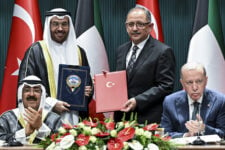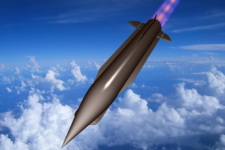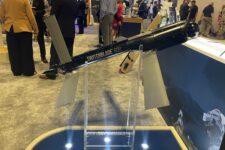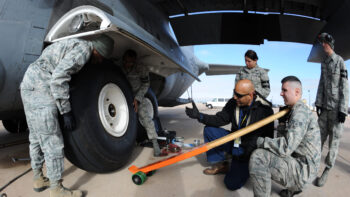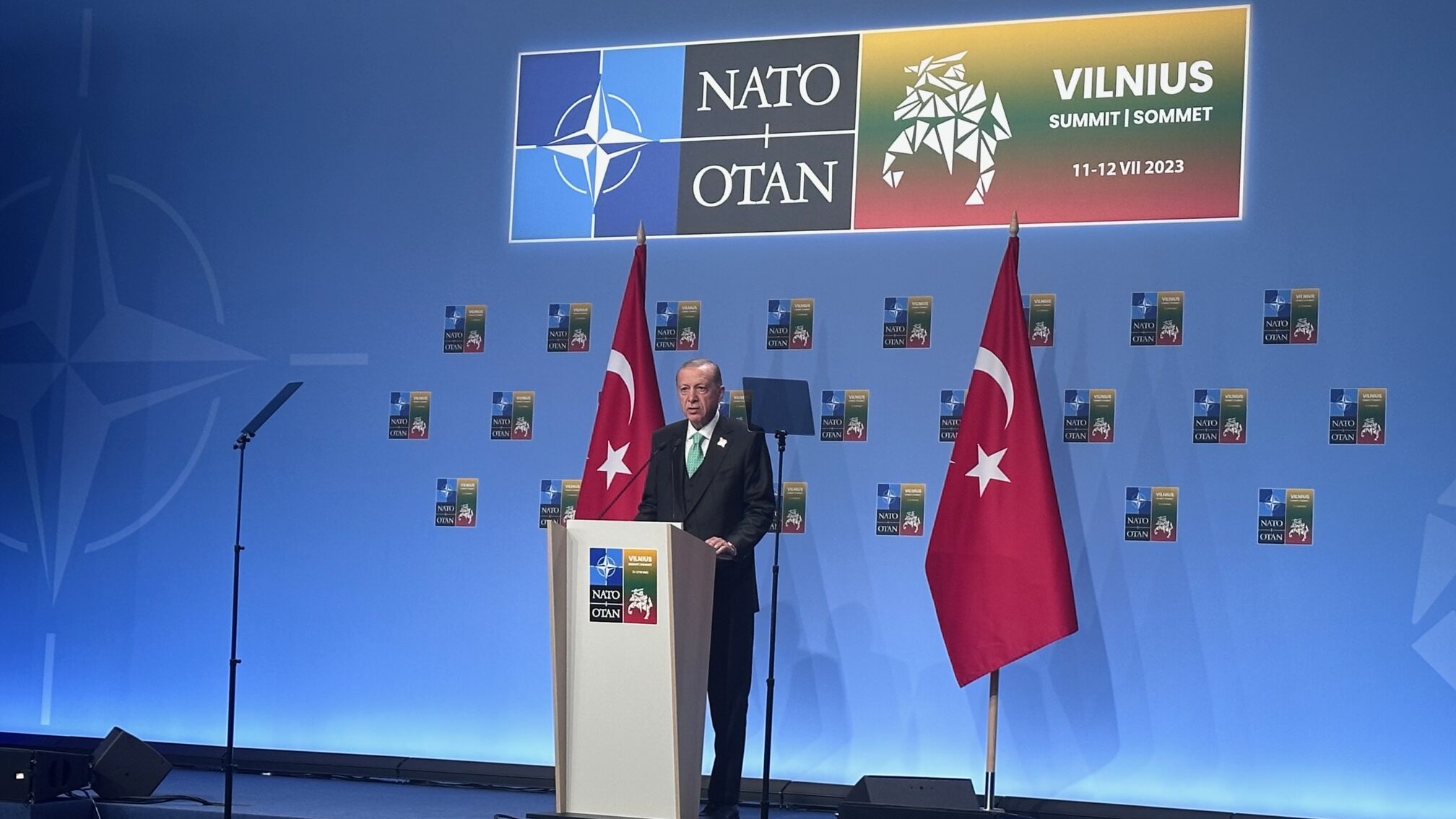
Turkish President Recep Tayyip Erdogan addresses media at the NATO Summit, Vilnius (Tim Martin / Breaking Defense)
VILNIUS — Turkish President Recep Tayyip Erdogan said today that the country’s parliament will not be able to ratify Sweden’s NATO membership application until October, a delay likely to disappoint Stockholm and NATO nations just days after the way appeared clear for the alliance’s would-be 32nd member.
Erdogan agreed to pass an accession protocol for Sweden to Turkey’s Grand National Assembly on Monday, but he told media at the NATO Summit here that there is a “two-month-long recess for parliament” ending in October and it wouldn’t be possible to take up the matter before that.
Though the delay does not fundamentally threaten Sweden’s membership, it could raise concerns among NATO partners that Ankara will use it as a bargaining chip to elicit new political or military concessions.
For instance, the sale by the US of F-16 fourth generation fighter jets to Turkey, which has been complicated by strong opposition from Congress, remains one such item. In the wake of Erdogan’s agreement on Sweden’s accession — itself a reversal from an earlier hardline Turkish position — both sides stressed newfound optimism that a deal could be completed soon.
Erdogan said today that he was “more hopeful than ever” about the acquisition going ahead. Earlier in the day, Jake Sullivan, US national security adviser, said that President Joe Biden is “eager” to close the deal and “continues to consult closely” with Congress to make it happen.
“The president tells us that the US Congress is binding on F-16s, and he told us that he would do everything at his disposal to pass the deal,” added Erdogan. “We need to ratify the NATO deal, they need to get through Congress.”
Reuters reported in January that the Biden administration had notified Congress of a deal worth $20 billion for 40 new F-16s, later further described [PDF] as Block 70/72 Viper standard (F-16Vs) and Viper upgrade packages for 79 existing aircraft, in addition to 900 air-to-air missiles and 800 bombs.
Washington previously denied Turkey purchase of up to 100 F-35 fifth generation fighter jets and removed it from the Joint Strike Fighter program altogether in response to Ankara’s acquisition of Russian S-400 air defense systems.
Erdogan downplayed any suggestion that the US Congress might look to apply conditions to the F-16 deal however, such as restricting Turkey using the aircraft against Greece, as a dispute over the Aegean Sea lingers.
“Regarding Greece, and Northern Cyprus, we met [Greek Prime Minister Kyriakos] Mitsotakis today,” Erdogan said. “We don’t have a cause to gain more enemies. At today’s meeting, we discussed the ways to deepen our friendship. Our meeting today was a re-foundation of our relationship. To this date our F-16s weren’t used in that way, and from now on they won’t be used in that way [against Greece].”




